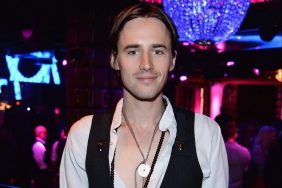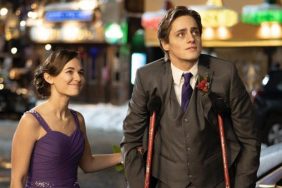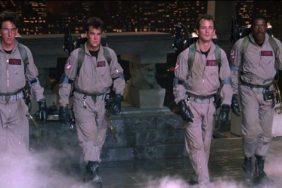Sometimes the world is so overwhelming, the only logical reaction is to break into song. At least, that’s the philosophy espoused by the musical genre, which combines elements of drama and comedy with either extroverted or introverted songs that illuminate aspects of the characters in a story that might otherwise have gone unnoticed.
It’s a strange genre, at least when viewed in a vacuum, and some contemporary audience members in particular seem to be a bit baffled by the existence of musicals in general. But many of the greatest movies ever made have been a part of the musical genre. And although musical films haven’t been at the top of the heap since around the time Grease came out – at least, not in live-action, and not consistently – there are still plenty of wonderful modern musicals that are keeping the genre alive and stretching it in new and unexpected directions, like this weekend’s new release La La Land, which is earning awards and accolades out the yin-yang.
But what, dear readers, is the best modern musical ever? We asked our panel of critics – Crave’s William Bibbiani and Witney Seibold, and Collider’s Brian Formo – to each present their one and only pick, and to defend their choice rigorously. Agree? Disagree? Find out what they thought and let us know what YOU think, and come back next Wednesday for another all-new, highly debatable installment of The Best Movie Ever!
Brian Formo’s Pick: Pennies from Heaven (1981)

United Artists
I’ll admit it, I sink in my seat and feel a little uncomfortable when a whole street or square of people burst into song. It likely has more to do with some of my own anxieties involving personal space than it does anything else. In this regard, while I responded to the deeply felt emotional tet-a-tets between Ryan Gosling and Emma Stone in this week’s La La Land, there were more classical musical sections that tapped into my musical anxieties too much to declare it the best modern musical. I’d still recommend the experience. But for someone of my ilk—and I know I’m not alone in cringing at BIG numbers—I’d call Dennis Potter’s Pennies from Heaven the best modern movie musical.
Now, no one actually sings in Pennies from Heaven. What Potter’s musical does is something more diabolical and dark. While people do pause to break into song and sets move and lights dim to give a musical feel, each actor is actually lip-syncing to period tracks. Pennies from Heaven is set during the Great Depression and the songs show how popular music not only provides a reprieve from worries but how the lyrics also don’t often greatly reflect what we have but what we hope to have—in terms of love, money and respect—and how it’s often unattainable as feeling how the songs put it.
When Steve Martin’s sheet music salesman “sings” a song about the most beautiful woman he just met (Bernadette Peters) his moment of positive feeling is immediately gruffly discounted by his friends vulgarly asking about how far he got. His musical feeling disappears. This is a dark film. The street music salesman is married and often tries to force himself on his suffering wife (Jessica Harper), his wife is treated like a prostitute by a businessman at a bar (Christopher Walken) and his desired love (Peters) faces being a single mother—but when they “sing” their hearts desires the film reacts with some of the best dancing and set movement numbers ever caught on film.
William Bibbiani’s Pick: Hedwig and the Angry Inch (2001)

New Line Cinema
Once a theater kid, always a theater kid. I love a good movie musical, and heck, sometimes I even love the bad ones. The genre hasn’t been as popular over the last half century as it used to be – as far as live-action cinema is concerned, anyway – but there have been a lot of great musical movies anyway, many of them bold and unusual, using the conventions of a glittery genre to expose unusual facets of our culture that might otherwise have gone unnoticed. It’s hard not to notice something when it breaks out into song, isn’t it?
If we’re defining “Modern Musicals” as the post-Grease era, we have a lot of intriguing examples to choose from. I would be remiss if I didn’t at least point out wonderful oddities like Hairspray, Cannibal! The Musical, Dancer in the Dark, South Park: Bigger, Longer and Uncut, The Saddest Music in the World, Reefer Madness: The Musical, Enchanted, The Last Five Years and La La Land. But I think I would also be remiss if I didn’t award the top honor to the vivacious, melancholy, intimate transgender glam rock power ballad posing a movie, which we call Hedwig and the Angry Inch.
Possessed of infectious songs (try getting “Wig in a Box” out of your head, I dare you), John Cameron Mitchell’s movie tells the saga of an East German immigrant, who flees the Iron Curtain by marrying an American, a feat only possible after having a sex change operation. Now trapped as a Middle American housewife, Hedwig (played by Mitchell) translates her poetic notions of love and identity into catchy rock songs, performed with all the power of David Bowie but for audiences who have no interest whatsoever… until her music is co-opted by a cisgender white male, who achieves superstardom after stealing Hedwig’s highly personal material (and he doesn’t even get the lyrics right).
Hedwig and the Angry Inch is an angry musical, but its anger has a purpose. The frustration of Hedwig is alleviated and elevated by our hero’s music, and by pursuing something grander than herself, she gradually finds a sense of enlightenment. Its a great old school musical with a fabulous new function, one that could perhaps only exist in a modern age, and one that deserves to flourish over the course of time.
Witney Seibold’s Pick: Once (2007)

Summit Entertainment
In the classic musicals – think Fred Astaire and Ginger Rogers – the playful music and virtuosic dancing are used as direct visual signifiers for falling in love. These classics take place in universe where human beings can become so overwhelmed with emotion, so smitten, so joyous, that their bodies break out into amazing tap routines, and their voices bounce forth in song. The classics take place in a heightened reality, one that doesn’t resemble the real world, where we are allowed to be lost in a fantasy.
If there has been one general aesthetic movement throughout the history of film, however, it’s been toward realism and away from the fantastical. Oh sure, the content of film can certainly be fantastical, but the motion and ethos of filmmaking in general tends to be toward capturing something very real about life. As such, modern musicals are less lightweight and typically more grounded than in previous generations. Even in a legitimate Broadway adaptation like the pretty awful 2002 film version of Chicago, the musical numbers are neutered as fantasies of the main character rather than actual happenstance within the reality of the film. This may be why La La Land is getting so much acclaim. For the first time in many years, the unreality of the musical form is allowed to simply be.
But so long as modern musicals are operating in a more grounded universe, we have been treated to at least one film that place live music, performed on set by real musicians, and the representative version of love become, well, actual love. In John Carney’s profoundly moving 2007 musical Once, Glen Hansard plays a street busker and Markéta Irglová plays a Czech pianist who find, largely through chance, that they simply make beautiful music together. That’s it. They’re simply talented, and find they have an unmatched, unspoken musical rapport. She’s married, he’s poor, but their mutual passion for music allows their lives to breathe with promise, hope, joy, and, yes, love. Even in this hyper-realistic universe, we see, music equals love. Once you learn that Hansard and Irglová began dating during the making of Once, you begin to realize that you’re watching two people falling in love, in real time, on the big screen. And that, friends, is glorious.





